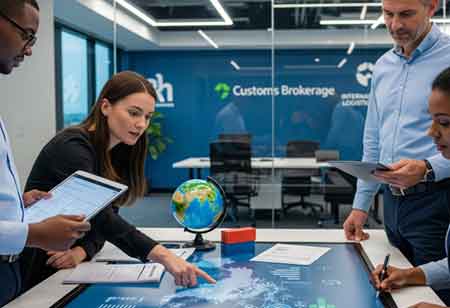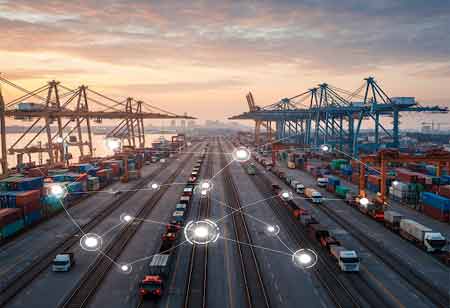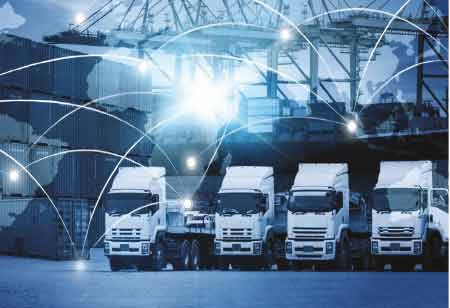THANK YOU FOR SUBSCRIBING
THANK YOU FOR SUBSCRIBING

By
Logistics Transportation Review | Tuesday, August 12, 2025
Stay ahead of the industry with exclusive feature stories on the top companies, expert insights and the latest news delivered straight to your inbox. Subscribe today.
Fremont, CA: Navigating modern international trade involves far more than merely clearing goods at borders. In today's volatile global marketplace, customs planning has transitioned into a strategic advantage rather than a bureaucratic necessity. Companies increasingly tap into digital customs capabilities, integrate artificial intelligence tools, and secure trusted trade credentials to streamline operations.
This shift transforms customs from a cost center into a growth enabler capable of boosting efficiency, managing risk, and supporting sustainability goals. Rather than explaining customs or teaching procedures, this article highlights how businesses turn customs insights into a competitive edge through deliberate strategy.
Data Transparency Enhances Decision-Making
Businesses that centralize customs data gain a strategic overview of tariff exposures and compliance status. Real-time visibility enables proactive duty optimization, smoother border crossings, and the avoidance of unnecessary delays. Access to harmonized data systems ensures consistent classifications, reduces administrative burden, and helps monitor evolving regulatory landscapes. Increasingly, customs data is becoming a form of trade currency, enabling smarter sourcing, minimizing errors, and aligning shipment flows with strategic priorities.
Trust Mechanisms Streamline Trade Flows
Growing emphasis on trusted trade frameworks—such as Authorized Economic Operator programs or digital passports for goods—supports smoother border clearance. By embedding advanced credentials and reliable customs track records into their operations, businesses position themselves for fast-track treatment and fewer inspections. Mutual recognition arrangements and standardized digital data sharing reinforce compliance-based trust, enabling risk-based clearance and greater predictability in cross-border movements.
AI-Powered Insights Drive Cost Efficiency and Sustainability
Artificial intelligence tools that map tariff codes, monitor eligibility, and forecast duty exposure help businesses reduce overpayments and avoid misclassifications. Companies typically overpay by several percentage points due to decentralized customs processes and missed free‑trade agreement benefits. AI-based platforms not only optimize finances but also help organizations align customs compliance with environmental regulations, such as carbon‑adjusted tariffs or deforestation rules. In this way, smarter customs supports both economic and sustainability targets.
Customs has transformed from a functional requirement into a strategic lever that companies can harness to gain a competitive advantage. Through centralized data, trusted trade mechanisms, and AI‑driven decision-making, businesses mitigate risk, improve resilience, and unlock financial and environmental benefits. Embracing a customs strategy ensures smoother trade flows, enhanced compliance credibility, and stronger alignment between operations and long‑term goals.
I agree We use cookies on this website to enhance your user experience. By clicking any link on this page you are giving your consent for us to set cookies. More info





